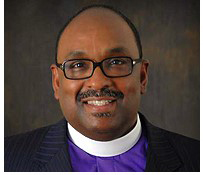DCCC emphasizes soft skills through real world projects
Published 12:00 am Thursday, June 2, 2016
THOMASVILLE — Employers desire more than skilled workers. They want responsible, professional and well-equipped employees dedicated to achieving their organization’s goals. It’s a desire higher education professionals have been hearing from the marketplace for quite some time.
“There’s an expectation that students will not only have the technical skills to do a job well but also the soft skills needed to excel as a strong employee,” said Mary Rittling, president of Davidson County Community College. “We provide many opportunities for students to prepare for success in the professional world through learning experiences that emphasize producing quality work, being a team player, practicing leadership and meeting goals.”
One way DCCC strives to prepare its students is by taking advantage of opportunities for community partnerships, which lead to real world projects for students.
Recently students in the digital media advertising program received the opportunity to work with the Davidson County Board of Commissioners. When the board decided it was time to explore designs for the entrance sign for the new Interstate 85 industrial park, they turned to DCCC.
“Working with an actual client teaches our students valuable lessons about relationship management and communication,” said Rodney Jackson, dean of business, engineering and technical Studies. “These experiences build upon academic studies and will serve our students well in their future careers.”
Throughout the project students worked in two teams and met with the board of commissioners to receive instructions and feedback on their progress. The project to design a sign that incorporated the client’s needs while creatively tackling the assignment in only three weeks, meant students would need to practice time management, teamwork and delegation within their teams.
“At first three weeks seemed like a long time, but once we started working on the project it became obvious that three weeks wasn’t really a long time and it would be crucial to have deadlines and stay organized,” Lauren Malpass, one of the student presenters, said.
During the final presentations, Steve Jarvis, board president, offered remarks and commented on how impressed he was with the level of dedication to the project students exhibited. When asked about the need for soft skills he said, “It’s definitely important. I’ve seen a lot of growth in the students from our first meeting to now.”
While the board will make a final decision at a future date, Jarvis mentioned that he hoped to reunite both teams and further acknowledge their contributions once the sign goes up. Ultimately the teams presented two very different designs. “I think they’re both great,” said Jarvis. “One is more of a traditional sign and one’s more futuristic. The final design will depend on how the board decides.”
Following the presentation, students were asked about what they learned and how they perceive the experience will impact them in the future.
“The biggest challenge working with the team has been learning to find a middle ground with everyone,” said Karan Deocharran, a student team leader. “Everyone has their own ideas and you have to respect that and be objective, weighing both the negatives and positives of each idea.”
Jeffrey Pubantz, digital media faculty member, stressed the importance of projects that allow students to collaborate and present in professional settings.
“To take a creative product and turn it into something that can represent themselves, represent their clients and represent the community is paramount to success in industry,” said Pubantz.




